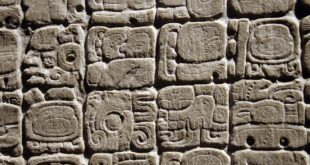Exploring Human Diversity through Anthropology
Introduction
Anthropology is the study of human beings, their societies, and cultures. It’s one of the most diverse and comprehensive disciplines that aim to understand the complexities of human societies across the world. Anthropologists explore people’s lives, traditions, and experiences, right from prehistoric times to contemporary societies. The primary scope of Anthropology is to present an accurate depiction of the pluralistic nature of humanity. Moreover, it tries to analyse how different societies came into existence and how people have learned to change as they responded to various economic, social, environmental, and cultural interactions.
The Importance of Anthropology
As humans evolved, they developed different ways of living in various parts of the planet, leading to substantive individual and cultural diversity. Anthropology enables us to understand the multiple perspectives that different cultures embody. Understanding humanity’s diversity is vital, especially in today’s globalised and multicultural world. In such a scenario, anthropology, through its insights and perspectives, can help us in bridging the gap of misunderstanding and building harmony between different communities.
Cultural Relativism Is Key
Anthropology promotes cultural relativism; it means that every culture has its place over the unique course of history, and no culture is inferior or superior to another. Anthropologists try to understand and appreciate other cultures-ideas, beliefs, and practices- from their cultural perspective, rather than subscribing to the commonly held notions of viewing their culture as the ultimate good. Cultural relativism practically eliminates the possibility of imposing dominant cultural ideologies, which reduces conflicts and brings all cultures on an equal scoreboard.
Improved Policy Making
Policymaking has significantly benefited from anthropological research. Governments and social development organisations seeking to implement social policies in different societies can take the lessons derived from the variations celebrated in Anthropology to make informed and sustainable policies. This is especially pertinent when developing social policies to overcome ethnical conflicts in diverse societies.
Closes the Gender Divide
Anthropology is crucial when it comes to gender equality. Any successful efforts towards gender equality in many parts of the world must base on human beings with complete dignity and understanding of the participant’s values and beliefs. Anthropologists have shown that the concept of gender is a socially constructed idea of what it means to inhabit a female or male body. In advocating for gender equality and inclusive policymaking, Anthropology has presented narratives for gender issues as cultural differences, demonstrating how seemingly contradictory mindsets of men and women only signify what is different from one culture to the next.
Conclusion
In conclusion, Anthropology allows us a rare lens to view how things have taken shape and make sense of human societies all around the world. Understanding human diversity is built into the essence of anthropology, as it opens doors for people to develop one Australia with a shared language that we must understand immigration and forced migration, identity, and ethnicity across various times and spaces. Continuous research shows us how people and the societies they make and create culturally diversify everywhere. The versatility of Anthropology ensures that it remains to inform social trends and development authorities, serving as a foundational tool for guiding most human pursuits.
 Mind Uncharted Explore. Discover. Learn.
Mind Uncharted Explore. Discover. Learn.




